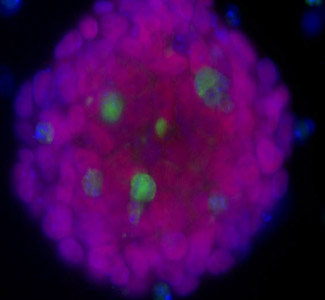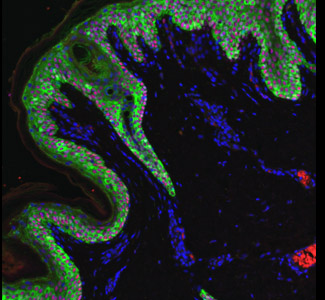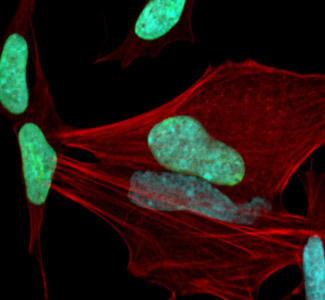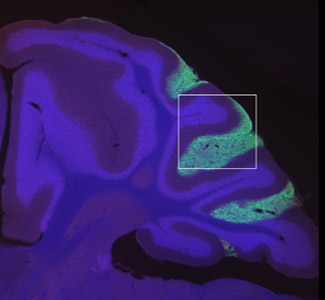Molecular oncology and pathology : identification of molecular targets and drug development
Several IBBC researchers are focused on the investigation of molecular and cellular mechanisms leading to cell transformation, cancer development and progression. This requires the integration of different experimental approaches, including profile-based screening of gene expression, bioinformatics analysis, phenotypical and biochemical characterization of genetically modified cellular and murine models.
Numerous cancer-associated processes are investigated. These include gene expression (mRNA, lncRNA, and miRNA), genome instability, lipid metabolism, DNA damage response, cell growth, apoptosis, hormone-dependency, differentiation, angiogenesis, cell invasion, cell-cell and cell-extracellular matrix interactions. The most investigated tumor models comprise leukemias, epithelial tumors (breast, lung, thyroid, head and neck, prostate, ovarian), brain and nervous system tumors.
A better understanding of the mechanisms regulating the activation of selected oncogenes and tumor suppressors genes, signaling pathways and mediators are instrumental in identifying cellular, biochemical, and molecular pathways involved in cancer biology and mechanisms of resistance to target therapies and valuable targets for the development of innovative anti-cancer drugs and treatments for unmet medical needs.
Groups involved :
- Adult neurogenesis, neurogenic stimuli,and gene therapy
- Cell Response and Stress Signal
- Cell signaling, epithelial cancer model systems and Schistosome Biology
- Molecular Neuro-Oncology
- Molecular oncology and genome instability




